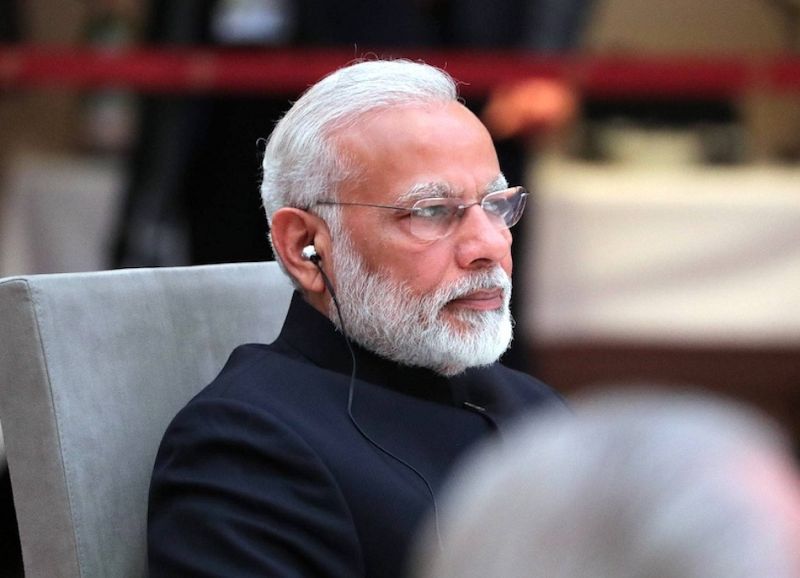Results of the 2024 Indian Election have seen a welcome shift of power away from Prime Minister Narendra Modi, though lingering discrimination issues persist, Adil Khan writes.
AFTER SEVEN WEEKS of voting, the 2024 Election in India is over and the results are out. The most revealing, if not the most shocking, aspect of the 2024 Election in India is that popular, somewhat deified Prime Minister Narendra Modi and his Bharatya Janata Party – (BJP) did not do as well as expected.
Modi and his ruling party, the BJP, which has ruled India for two consecutive terms were confident of a landslide victory. The media and the exit polls also predicted a landslide Modi victory.
These projections predicted that the BJP would win more than 400 of 543 seats in the Lok Sabha, the Lower House. As is evident, none of these projections have come true — BJP won 240 seats, falling short of the 272 seats needed to form government.
BJP is now negotiating with other parties – mostly sub-national parties – to form the government.
Many have put BJP’s less-than-expected poll results to their “despondency" or "the suffocating shadow of authoritarianism.”
Others have argued that:
'The general election of 2024 is a wondrous moment. The air of despondency, the suffocating shadow of authoritarianism, and the nauseous winds of communalism have, at least for the moment, lifted... Modi, the deified personification of the people, has been cut to size and turned into a politician like others.'
Indeed, there were signs that Modi was veering towards authoritarianism. Recent global surveys on freedom also revealed a similar scenario — these surveys have placed India under 'Partly Free' categories of countries.
However, despite its many aberrations – and free and fair elections – a key component of democracy seemed to have retained its integrity in India and thus helped India return to competitive politics from personalised politics.
The breaking of the Modi myth (which until now had put him above the state) and the shattering of Modi's monopoly on power – which, in the recent past, weakened democratic norms and practices in India – has revived checks, balances and accountability in governance.
The 2024 Indian General Elections have reaffirmed that in a functioning democracy, politicians may fool all people for some time and some people for all time — the 2024 Election has aptly revealed that. In India, the election component of democracy has always functioned well and with integrity. Modi’s Hindu nationalism – bad-mouthing and persecuting Muslims – worked until now.
A large section of Indians, especially its middle class, continue to adore Modi, especially his anti-Muslim sectarianism.
Indeed, the 2024 Indian Election has demonstrated that when push comes to shove, people make choices not on lofty nationalism or larger-than-life personalities but on the bread-and-butter issues.
During the immediate past Modi-governing period, India experienced fast economic growth and, at the same time, an intolerable rise in inequality, poverty, hunger and unemployment. Modi’s relentless anti-Muslim campaign venoms made no sense — rather, sounded irrelevant and annoyed people with the result that many voters shied away from Modi and his party and cast their votes in favour of the opposition alliance.
Sadly, while Modi and his party were duly punished at the ballot boxes mainly because of economic fallouts, legacies of his Hindu nationalism, the othering of Muslims, seem to be lingering to an extent that even India’s “secular” opposition is too afraid to say or do things that may appear, even remotely, pro-Muslim.
For example, during a press briefing, the leader of the Opposition Alliance, Rahul Gandhi, who is known as a secular politician, stated:
“It [election outcome] was a fight to save the constitution. I would like to thank everybody who has participated in this election... It is the poor and marginalised people who came out to save the constitution. Workers, farmers, Dalits, adivasis [Indigenous] and backwards have helped saved this constitution."
Noticeably absent from his statement are the 200 million Muslims, India’s largest minority and victims of Modi’s exclusionary Hindu nationalism politics, who overwhelmingly voted for his alliance.
This is both concerning and instructive, especially because Rahul Gandhi’s omission of Muslims in his post-election press briefing was no slip of the tongue. It was deliberate.
India’s “secular” opposition is fully aware that Modi’s years of sectarian politics have radicalised India’s majority Hindu middle class such that “taking the name of Muslims might harm the fortunes of [their] political parties”.
Furthermore, against the demographic of 14 per cent of India’s population who are Muslims, a mere 4.42 per cent of the parliamentarians are Muslims. In the 2024 Elections, where “secular” opposition has made significant gains, the representation of Muslims has not witnessed a corresponding uplift in the alliance.
In other words, though the 2024 election may have weakened Modi politically and rejuvenated democracy, the legacies of his sectarianism – Islamophobia – remain alive and dominant in Indian politics.
Australia, an important ally of India has noted the triumph of democracy in India and accordingly has duly applauded India’s free and fair elections.
For example, referring to the results of the 2024 Election, Barry Farrell, former NSW Premier and Australian High Commissioner to India, has commended India’s “deep commitment to democracy” and sees Modi’s return to power as “a positive outcome for Australia as we seek a free-trade deal with the world’s fastest-growing economy” — and through Quad partnership of which India is a key member: “a stable, prosperous and free neighbourhood".
These are valid observations and suggestions. However, Barry Farrell seems to have overlooked, somewhat deliberately, India’s ethical failures and – to justify his position – quoted diehard imperialist Winston Churchill, who once said: “Democracies aren’t perfect and many exhibit practices which concern others”.
Farrell has put commercial and geopolitical opportunism ahead of democratic values. This is disappointing, for it is difficult to justify democracies that allow free elections but promote racist exclusionary policies as ideal partners to do business with, economic and otherwise.
In sum, the 2024 Election has ushered in a new era in India. The Election has broken Modi's spell and brought back competitive politics — though sadly, Modi-initiated politics of exclusion and othering of Muslims seems to have sustained.
This is unhealthy and in these circumstances – as far as Australia’s relations with India are concerned – while it is desirable that both countries promote mutually beneficial trade, investment and security opportunities, it is also important that these transactions do not occur in conditions of communally inspired structured injustices against a minority group.
Indeed, the onus is on the free world, including Australia, to encourage India, a rising economic powerhouse, to abandon sectarian politics and all forms of institutionalised injustices and evolve as a truly democratic, inclusive society and partner.
Professor Adil Khan is an adjunct professor at the School of Social Sciences, University of Queensland and a former senior policy manager of the United Nations. Adil is also a member of the Rohingya Support Group, Queensland.
Related Articles
 This work is licensed under a Creative Commons Attribution-NonCommercial-NoDerivs 3.0 Australia License
This work is licensed under a Creative Commons Attribution-NonCommercial-NoDerivs 3.0 Australia License
Support independent journalism Subscribe to IA.















